
York Island: Sierra Leone's Hidden Gem
York Island, located off the coast of Sierra Leone, is a tranquil paradise that offers a mix of natural beauty and rich history. This small island is surrounded by the clear blue waters of the Atlantic Ocean, making it an ideal spot for beach lovers and water sports enthusiasts. The palm-fringed beaches provide a serene backdrop for sunbathing, swimming, and snorkeling. The island's lush greenery and diverse wildlife make it a haven for nature lovers looking to explore its trails and observe its vibrant birdlife. York Island is steeped in history, with remnants of colonial architecture and old forts that tell tales of its past. Visitors can explore these historical sites and learn about the island's role during the colonial era and the transatlantic slave trade. The village on the island is home to a friendly and welcoming community, where tourists can experience the local culture, enjoy traditional music and dance, and savor delicious Sierra Leonean cuisine. For those seeking adventure, York Island offers opportunities for kayaking, fishing, and boat excursions to nearby islands. The island's laid-back atmosphere and unspoiled landscapes make it a perfect escape from the hustle and bustle of city life. Whether you're looking to relax on the beach, delve into history, or immerse yourself in nature, York Island has something for everyone.
Local tips in York Island
- Visit during the dry season (November to April) for the best weather conditions.
- Bring cash as there are no ATMs on the island.
- Pack insect repellent to protect yourself from mosquitoes.
- Engage with the local community to truly experience the island’s culture.
- Hire a local guide to explore the historical sites and learn about their significance.
York Island: Sierra Leone's Hidden Gem
York Island, located off the coast of Sierra Leone, is a tranquil paradise that offers a mix of natural beauty and rich history. This small island is surrounded by the clear blue waters of the Atlantic Ocean, making it an ideal spot for beach lovers and water sports enthusiasts. The palm-fringed beaches provide a serene backdrop for sunbathing, swimming, and snorkeling. The island's lush greenery and diverse wildlife make it a haven for nature lovers looking to explore its trails and observe its vibrant birdlife. York Island is steeped in history, with remnants of colonial architecture and old forts that tell tales of its past. Visitors can explore these historical sites and learn about the island's role during the colonial era and the transatlantic slave trade. The village on the island is home to a friendly and welcoming community, where tourists can experience the local culture, enjoy traditional music and dance, and savor delicious Sierra Leonean cuisine. For those seeking adventure, York Island offers opportunities for kayaking, fishing, and boat excursions to nearby islands. The island's laid-back atmosphere and unspoiled landscapes make it a perfect escape from the hustle and bustle of city life. Whether you're looking to relax on the beach, delve into history, or immerse yourself in nature, York Island has something for everyone.
When is the best time to go to York Island?
Unmissable attractions to see
Clock Tower, Bo
Discover the rich history and vibrant culture at Bo's iconic Clock Tower, a must-visit landmark for every traveler in Sierra Leone.

Gola Rainforest National Park
Explore Gola Rainforest National Park, a vibrant haven of biodiversity in Sierra Leone, where adventure and nature intertwine beautifully.
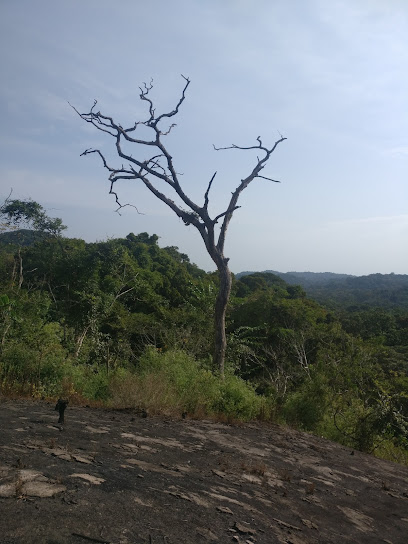
Sulima Community, Sierra Leone
Experience the vibrant culture and breathtaking landscapes of Sulima Community, Sierra Leone, a hidden treasure for adventurous travelers.
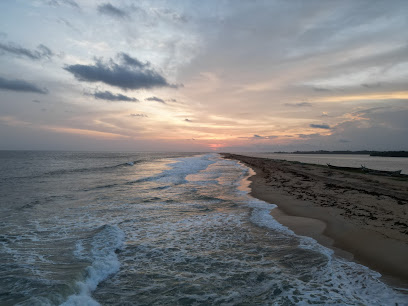
Essential places to dine
Mamba Point Hotel Restaurant Lagoonda
Experience exquisite dining with breathtaking views at Mamba Point Hotel Restaurant Lagoonda in Freetown, Sierra Leone.

Gigibontà Ice Cream and Pizzeria
Experience authentic Italian flavors at Gigibontà Ice Cream and Pizzeria along Freetown's stunning Lumley Beach - a culinary paradise awaits!
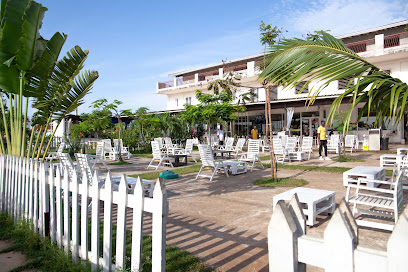
Roy Hotel & Restaurant
Discover exquisite dining at Roy Hotel & Restaurant in Freetown - where local flavors meet stunning coastal views.
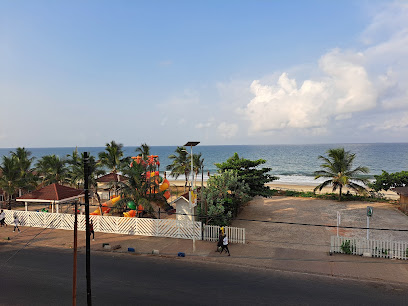
Crown Bakery
Discover the flavors of Freetown at Crown Bakery – where delicious pastries meet local culinary traditions.
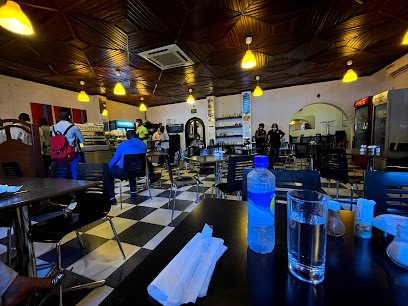
Crown Xpress
Discover the flavors of Sierra Leone at Crown Xpress - where local cuisine meets international flair in Freetown's vibrant dining scene.
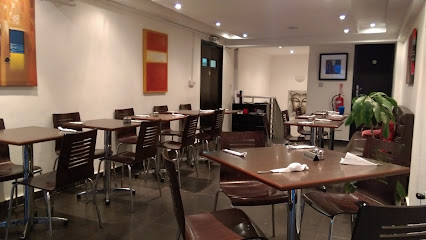
Bliss Restaurant
Experience the vibrant flavors of Freetown at Bliss Restaurant, where local cuisine meets international flair in a cozy atmosphere.
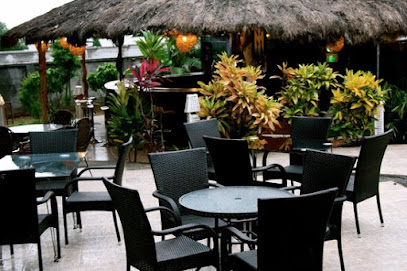
Olba Restaurant
Experience exquisite Mediterranean cuisine at Olba Restaurant while enjoying stunning ocean views on Lumley Beach.
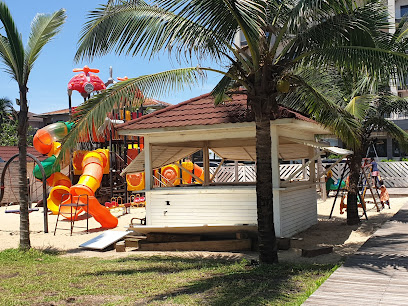
LOR Restaurant
Experience the vibrant flavors of Sierra Leone at LOR Restaurant in Freetown – where local meets global cuisine.
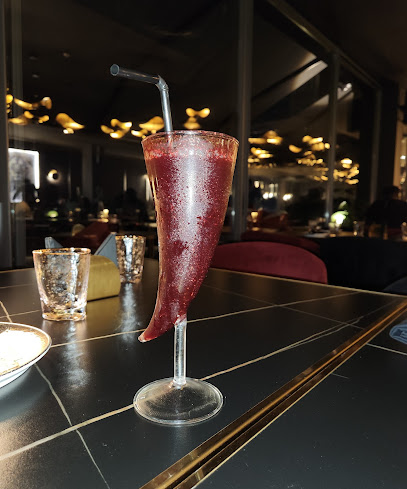
Swan restaurant & Grill
Experience exquisite dining at Swan Restaurant & Grill in Freetown—where local flavors meet stunning coastal views.
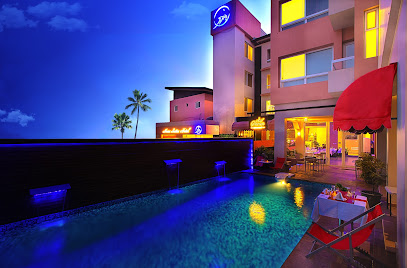
Ruri's Restaurant
Experience authentic West African cuisine at Ruri's Restaurant in Bo—where fresh fish delights await you.
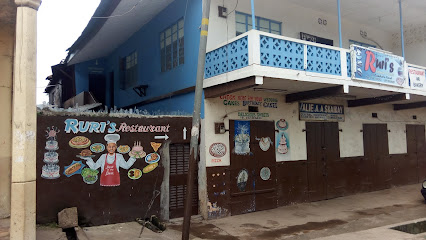
Brimelia Vegetarian Restaurant
Discover delicious plant-based dishes at Brimelia Vegetarian Restaurant in Freetown – a must-visit for health-conscious travelers!
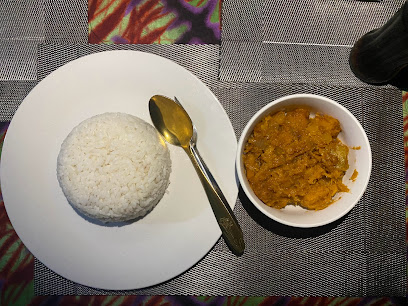
Bafa Resort
Discover tranquility at Bafa Resort on Bailmore Banana Island—your perfect seaside retreat for relaxation and adventure.
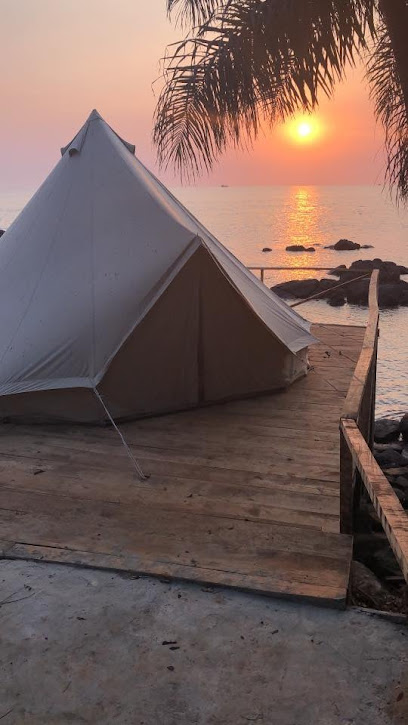
Vicanda Parlour Restaurant
Experience authentic Sierra Leonean flavors at Vicanda Parlour Restaurant in Bo – where every meal tells a story.
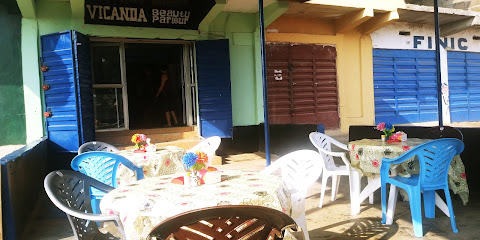
Leo Restaurant & Cafe
Experience fine dining at Leo Restaurant & Cafe on Lumley Beach - where exquisite cuisine meets breathtaking ocean views.
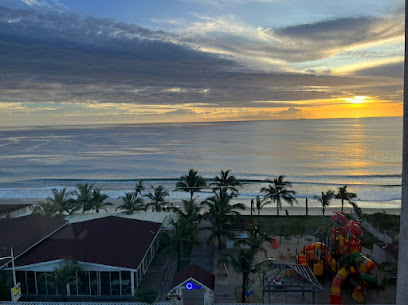
Samso's Restaurant
Experience the best seafood dining in Freetown at Samso's Restaurant, where fresh local catches meet traditional flavors.
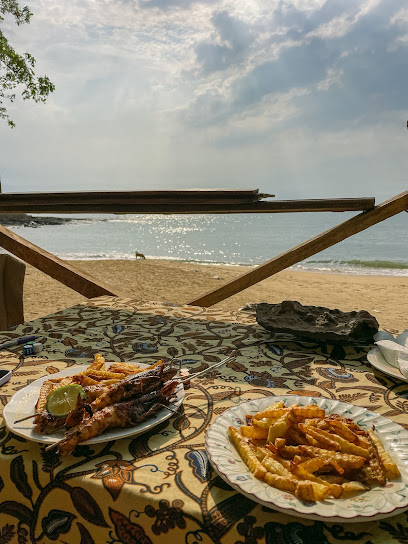
Markets, malls and hidden boutiques
vip Fashion store
Explore unique fashion at VIP Fashion Store in Freetown, where local style meets modern trends in a boutique experience.

Bo Mini Market
Explore local flavors and vibrant culture at Bo Mini Market, your go-to grocery store in Bo, Sierra Leone.
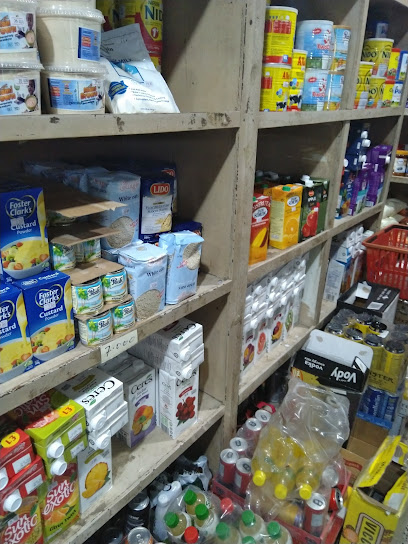
Bonthe Fresh Market
Experience the heart of Bonthe at the Fresh Market, a colorful destination for fresh produce and local culture.
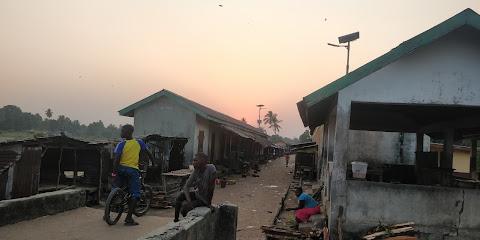
Bellah section
Explore the unique charm of Bellah Section, a home goods store in Matru offering authentic local craftsmanship and delightful decor for every taste.

Walters Plaza
Experience the vibrant energy of Walters Plaza, Bo's premier shopping destination, offering diverse retail, dining, and entertainment options.
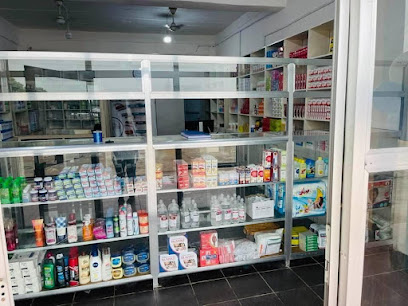
IB jayolo
Discover the heart of Moyamba at IB Jayolo, your go-to store for authentic Sierra Leonean products and cultural treasures.
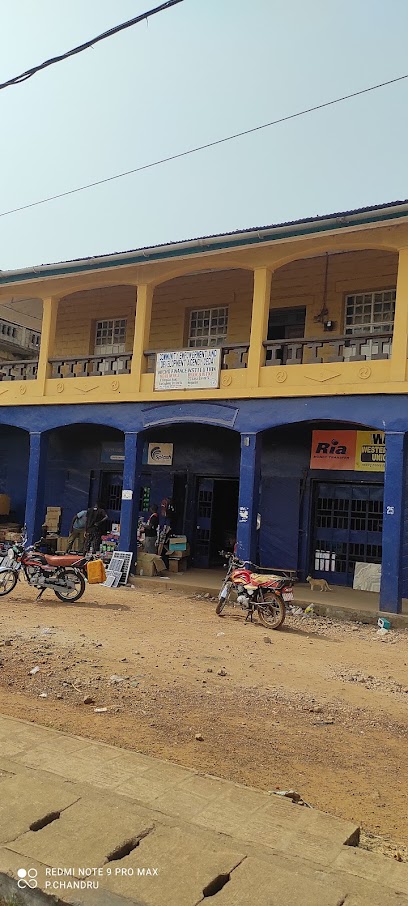
Seaview shopping mall
Explore local flavors and vibrant culture at Seaview Shopping Mall, the heart of grocery shopping in Moriba Town.
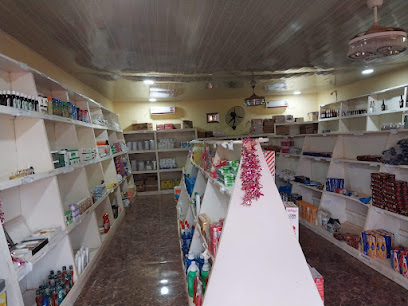
York Island
Explore the pristine beauty of York Island, Sierra Leone's hidden gem, where adventure meets tranquility amidst breathtaking landscapes.

J.STORE
Explore J.STORE in Bo for an authentic shopping experience, featuring local products and unique souvenirs amidst the vibrant culture of Sierra Leone.

K.S.Magnetic Fashion Boutique
Explore K.S. Magnetic Fashion Boutique in Bo for unique local and international styles, perfect for enhancing your wardrobe while discovering Sierra Leone's culture.

new york fashion boutique
Explore the vibrant styles of New York Fashion Boutique in Freetown, where local fashion meets international trends for the ultimate shopping experience.

Community Store Building
Discover Bonthe's Community Store Building, a pharmacy that embodies local culture and offers essential health products for tourists and residents alike.

Bonthe District Fisheries
Discover the essence of fishing in Bonthe District Fisheries, a hub for anglers and enthusiasts in Sierra Leone's stunning coastal landscape.

The Family Enterprise
Discover The Family Enterprise in Yo, your trusted pharmacy for health essentials, wellness products, and expert advice during your travels.

Dadido boutique. Com
Discover unique dresses that blend local artistry with contemporary fashion at Dadido Boutique in Bo.

Essential bars & hidden hideouts
Leone sky bar
Discover the breathtaking views and exquisite cuisine at Leone Sky Bar, Freetown's premier rooftop dining destination.
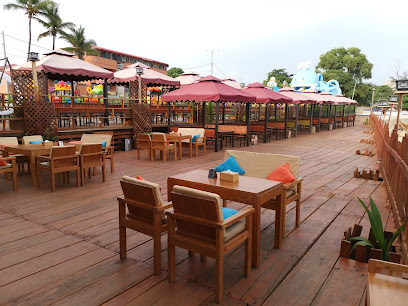
Remedy Hangout Bar
Discover the lively nightlife and refreshing drinks at Remedy Hangout Bar, a must-visit destination in Freetown for tourists.

Mamz Beach Bar
Discover the vibrant Mamz Beach Bar in Freetown, where stunning ocean views meet delicious local cuisine and lively cultural experiences.
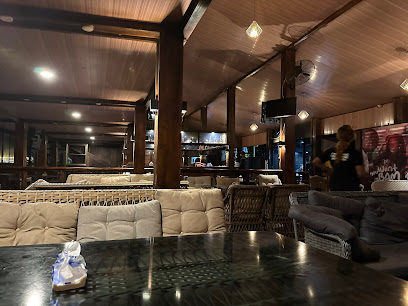
DeVillage Beach Bar & Restaurant
Discover the flavors of Sierra Leone at DeVillage Beach Bar & Restaurant, where fresh seafood meets breathtaking ocean views in Freetown.
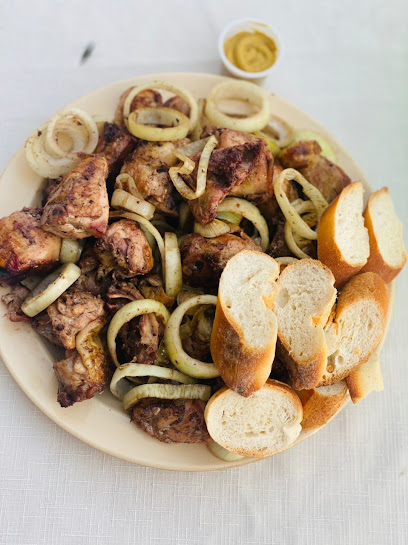
Obama's Bar and Restaurant
Discover vibrant nightlife and local flavors at Obama's Bar and Restaurant in Bo, where laughter and great drinks abound.
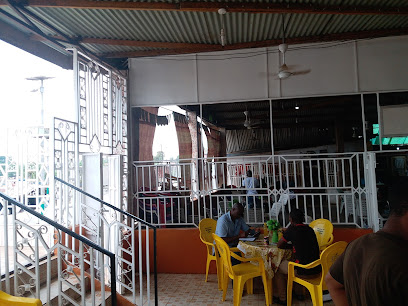
Hancess Bar and Restaurant
Experience the authentic flavors of Sierra Leone at Hancess Bar and Restaurant, where every dish tells a story of tradition and taste.

Leonco Bar & Restaurant
Discover the lively Leonco Bar & Restaurant in Bo, where local flavors meet vibrant nightlife in a welcoming atmosphere.
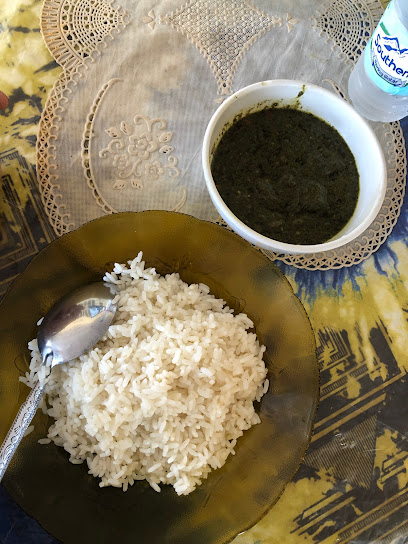
Lahai Koroma
Discover the vibrant atmosphere and breathtaking views at Lahai Koroma, Moriba Town's premier bar for relaxation and socializing.
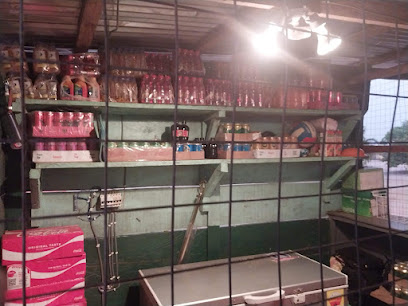
Inner London Saloon and Bar
Experience the lively atmosphere and local flavors at the Inner London Saloon and Bar in Bo, where every drink tells a story.

Remedies Restaurant and Bar
Discover the culinary delights of Sierra Leone at Remedies Restaurant and Bar, where local flavors meet a welcoming atmosphere.

Menyeleh's Beach Bar and Restaurant
Experience the vibrant flavors of Sierra Leone at Menyeleh's Beach Bar and Restaurant, nestled on the stunning Bureh Beach.
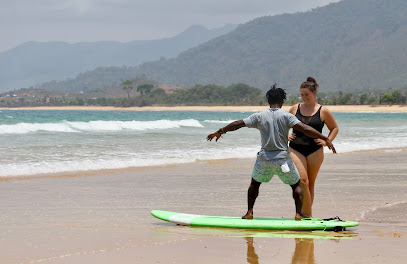
Vanity
Experience the vibrant atmosphere of Vanity, a chic lounge in Freetown, perfect for relaxation and socializing.

Havana Sport Bar
Experience the vibrant nightlife at Havana Sport Bar in Bo, where friendly faces and lively conversations await every visitor.
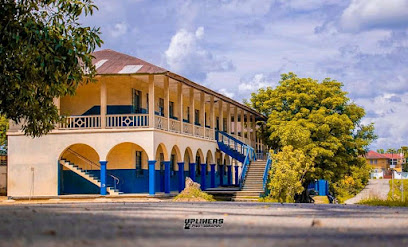
York Island
Experience the tranquility and natural beauty of York Island, a hidden paradise in Sierra Leone, perfect for relaxation and adventure.

Local Phrases about York Island
-
- HelloSaiwo
[say-woh] - GoodbyeKaa kaa
[kaa kaa] - YesAwo
[ah-woh] - NoEhn
[ehn] - Please/You're welcomeNa deh
[nah deh] - Thank youTenki
[ten-kee] - Excuse me/SorryDɛnki
[dehn-kee] - How are you?How de bodi?
[how deh boh-dee] - Fine. And you?Fine. Na yu?
[fine. nah yoo] - Do you speak English?Yu sabi tok Inglish?
[yoo sah-bee tohk in-glish] - I don't understandAh no sabi
[ah no sah-bee]
- HelloSaiwo
-
- I'd like to see the menu, pleaseAh go lek see di menu, abeg
[ah goh lek see dee meh-noo, ah-beg] - I don't eat meatAh no dey eat meet
[ah no deh eat meet] - Cheers!Mokanji
[moh-kahn-jee] - I would like to pay, pleaseAh go pay, abeg
[ah goh pay, ah-beg]
- I'd like to see the menu, pleaseAh go lek see di menu, abeg
-
- Help!Mek a yu!
[mek ah yoo] - Go away!Geh wae!
[geh wae] - Call the Police!Kol Police!
[kohl police] - Call a doctor!Kol dokita!
[kohl doh-kee-tah] - I'm lostAh lost
[ah lost] - I'm illAh sik
[ah seek]
- Help!Mek a yu!
-
- I'd like to buy...Ah go buy...
[ah goh buy] - I'm just lookingAh dey luk
[ah deh look] - How much is it?Na ow much?
[nah oh much] - That's too expensiveE too cost
[eh too cost] - Can you lower the price?Yu go fit reduce di price?
[yoo goh fit ree-dyooce dee price]
- I'd like to buy...Ah go buy...
-
- What time is it?Na ow clock?
[nah oh clock] - It's one o'clockNa wan clock
[nah wahn clock] - Half past (10)Na half paa ten
[nah half pah ten] - MorningMɔnin
[moh-neen] - AfternoonAfnon
[ahf-nohn] - EveningIvinin
[ee-vee-neen] - YesterdayYɛstide
[yeh-stee-deh] - TodayTideh
[tee-deh] - TomorrowTamoro
[tah-moh-roh] - 1Wan
[wahn] - 2Tu
[too] - 3Tri
[tree] - 4Fo
[foh] - 5Faiv
[fah-eev] - 6Siks
[siks] - 7Seven
[seh-ven] - 8Eit
[ayt] - 9Nain
[nayn] - 10Ten
[ten]
- What time is it?Na ow clock?
-
- Where's a/the...?Dɛn di... dey?
[dehn dee deh] - What's the address?Na wɛtɔ de dress?
[nah weh-toh deh dress] - Can you show me (on the map)?Yu go fit show me (pan di map)?
[yoo goh fit show meh (pahn dee map)] - When's the next (bus)?Na wen di nex (bus)?
[nah wen dee neks (bus)] - A ticket (to ....)Na tikɛt (go ...)
[nah tee-ket (goh)]
- Where's a/the...?Dɛn di... dey?
History of York Island
-
York Island, nestled off the coast of Sierra Leone, has a rich history that dates back to its earliest inhabitants - the indigenous Sherbro people. The Sherbro, known for their fishing and trading skills, established a thriving community on the island long before European contact. Their culture, which included intricate weaving, fishing techniques, and traditional music, laid the foundation for the island's cultural heritage.
-
The 15th century marked the arrival of European explorers, predominantly the Portuguese, who were drawn by the strategic location of York Island. They established trade relations with the indigenous people, exchanging goods such as textiles, spices, and metals for gold, ivory, and other local products. This period saw the beginning of cultural exchanges and the introduction of foreign goods to the island.
-
In the 17th and 18th centuries, York Island became a significant point in the transatlantic slave trade. European traders established forts and trading posts, using the island as a staging ground for the capture and shipment of enslaved Africans to the Americas. This dark period left an indelible mark on the island's history, with remnants of old forts and trading posts still visible today.
-
In the 19th century, York Island, like much of Sierra Leone, came under British colonial rule. The British established administrative and military outposts on the island, influencing its architecture, governance, and education systems. The colonial period also saw the introduction of Christianity and Western education, reshaping the island's cultural and social landscape.
-
Sierra Leone gained independence from British rule in 1961, and York Island became part of the newly sovereign nation. Post-independence, the island has experienced various phases of development and modernization. Efforts to preserve its historical sites and promote tourism have been ongoing, with the island's natural beauty and historical significance attracting visitors from around the globe.
-
Today, York Island is a vibrant community that celebrates its rich cultural heritage through various festivals and traditions. Annual events such as the York Island Cultural Festival highlight the island's music, dance, and culinary traditions, offering visitors a chance to experience its unique cultural tapestry. The island's history is also preserved in local museums and cultural centers, where artifacts and stories from different eras are displayed.
York Island Essentials
-
York Island is located off the coast of Sierra Leone, near the Freetown Peninsula. The nearest major airport is Lungi International Airport in Freetown. From the airport, you can take a ferry or water taxi to reach Freetown. Once in Freetown, you can hire a boat or join an organized tour to York Island. The journey from Freetown to York Island typically takes around 1-2 hours by boat.
-
York Island is small, and most of its attractions can be explored on foot. For longer distances, local boats and canoes are available for hire. There are no public transportation options on the island itself, so planning your movements in advance is essential. In Freetown, taxis and motorbikes (okadas) are common and can be used to travel to the departure points for boats to York Island.
-
The official currency in Sierra Leone is the Leone (SLL). Credit cards are not widely accepted on York Island, so it is crucial to carry sufficient cash. ATMs are available in Freetown, but it is advisable to withdraw enough cash before traveling to the island. Local businesses, including small shops and restaurants, typically operate on a cash-only basis.
-
York Island is generally safe for tourists, but it is essential to remain cautious. Avoid walking alone at night and be mindful of your belongings in crowded areas. While the island itself has a low crime rate, Freetown has some neighborhoods with higher crime rates. Areas like Kroo Town and the Aberdeen Bridge area have been known for crimes targeting tourists. Always stay vigilant and avoid displaying valuable items openly.
-
In case of emergency, dial 019 for police assistance and 030 for medical emergencies. There is a small medical facility on York Island for minor health issues, but for serious medical conditions, you may need to return to Freetown where more comprehensive medical services are available. It is highly recommended to have travel insurance that covers medical emergencies and evacuation.
-
Fashion: Do dress modestly, especially when visiting local communities. Avoid wearing overly revealing clothing. Religion: Do respect local customs and traditions. Always ask for permission before taking photos of people or religious sites. Public Transport: Do be respectful and patient when using local boats and taxis. Don't haggle aggressively. Greetings: Do greet people with a handshake and a smile. A friendly gesture goes a long way. Eating & Drinking: Do try local dishes and accept food offerings graciously. Don't refuse hospitality, as it is considered impolite.
-
To experience York Island like a local, visit the local markets where you can buy fresh seafood and handmade crafts. Engage with the island's residents, as they are often friendly and willing to share stories about their culture and history. Don't miss the chance to explore the island's historic sites, such as the old slave fort and the colonial-era buildings. For a unique experience, join a fishing trip with local fishermen and learn traditional fishing techniques.
Nearby Cities to York Island
-
Things To Do in Pujehun
-
Things To Do in Port Loko
-
Things To Do in Magburaka
-
Things To Do in Kenema
-
Things To Do in Monrovia
-
Things To Do in Conakry
-
Things To Do in Kakata
-
Things To Do in Voinjama
-
Things To Do in Buchanan
-
Things To Do in Gbarnga
-
Things To Do in Faranah
-
Things To Do in Ganta
-
Things To Do in Sanniquellie
-
Things To Do in Quebo
-
Things To Do in Buba








